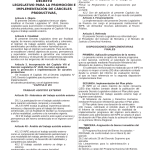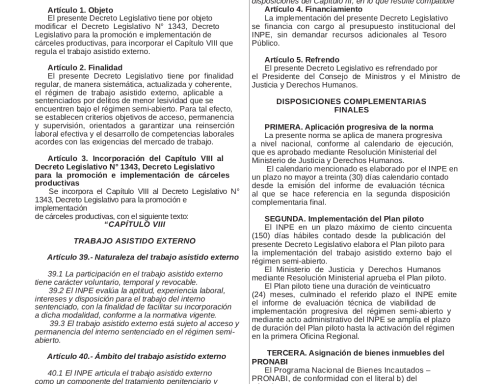The Debugged Tax Rate (TTD), or minimum rate, is one of the most innovative and somewhat controversial elements of the latest tax reform in Colombia. Although its impact is considerable, many businessmen are still unaware of the effects of this rule on their profits and tax burdens, which which could translate into significant financial surprises when complying with your tax obligations.
(Read here: Leaders of the 20 largest economies in the world discuss a tax on the ‘super-rich’)
But what is the Adjusted Tax Rate? According to César Camilo Cermeño, director of the master’s degree and specialization in taxation at the University of Los Andes, “is the measurement of a magnitude (rate) that is calculated by searching for the proportion that exists between the tax paid by a taxpayer, with some modifications, over their accounting profit, with other modifications. Specifically, it seeks to confirm whether, taking into account the relevant adjustments, a taxpayer is paying income tax of at least 15% of their profits to the treasury.”
Although the TTD arises as an adaptation of the global minimum tax initiative promoted by the OECD for multinationals, in Colombia, the norm has wide differences with the recommendations of the organization.
While the OECD proposes this type of minimum rate for multinational groups with income exceeding 750 million euros, in Colombia it applies to all legal entities that pay income tax, from small businesses to large companies such as Ecopetrol, with some exceptions. And among the criticisms raised before the Constitutional Court are allegations of violation of the principle of equity, for taxing potential and not real income.
Another recurring argument is that the rule imposes double taxation by taxing accounting income in one year that will already be reported in the traditional income tax regime in subsequent years. There is also unequal treatment towards companies that must consolidate financial statements compared to those that do not have this obligation.
(See here: The business reported ‘slight’ improvement in its sales during October 2024)
Cermeño suggests that the accelerated adoption of DTC in Colombia, without waiting for OECD recommendations, can be an important lesson. In other countries, the implementation of a global minimum tax has been progressive and based on previous experiences, which reduces the risk of unforeseen negative impacts.
For Julio César Toro, partner at Toro Asociados and university professor, the TTD was included in Law 2277 of 2022, the first tax reform of the Gustavo Petro government, with the aim of implementing OECD rules. However, the Colombian law also seeks to achieve its own goals, such as reducing tax exemptions and combating tax evasion and avoidance, in addition to increasing tax revenues to finance the social protection system, he says.
And he adds, “In simple terms, the objective of the TTD is to limit the use of tax benefits that some companies take advantage of to significantly reduce their tax burden. Consequently, the rule implies a sustained impact, in accordance with the 2023 Medium-Term Fiscal Framework, of 0.05 points of GDP until 2034.”
Furthermore, the reaction of the business sector to the implementation of the TTD has been mixed, and many businessmen were surprised to discover the consequences of this rule when settling their income tax. “During fiscal year 2023, several companies experienced unexpected tax increases, including cases of additional taxes on income that in tax practice cannot be understood as actual income,” comments Toro.
Pros and cons
Effective Tax Rate.
Another advantage is that it allows tax benefits to be granted without losing revenue, since these will be limited by the 15% threshold imposed by the minimum rate. On the other hand, for companies, it implies an increase in the tax and operational burden, since many They will have to turn to experts to verify that their effective rate complies with the regulations, or calculate the necessary additional tax.
In terms of disadvantages, Toro highlights that the rule can have an adverse impact on investments that depended on tax incentives. “By imposing a minimum tax rate, it could erode the attractiveness of these tax benefits and affect future investment decisions.”
Economic growth
According to the Medium Term Fiscal Framework, the Government expects that the TTD will generate an increase in tax collection that could range between half a billion and one trillion pesos until the year 2034. However, some experts consider that the TTD, in its version current, can become an obstacle to growth, since it increases the tax burden even for companies that have met specific conditions to obtain benefits.
(Follow here: ‘Enforceable tax laws are required’)
Cermeño warns that the TTD can discourage multinationals and national companies that traditionally invest and generate jobs in the country, and emphasizes that tax incentives are not granted without compensation; They are usually awarded in exchange for investments, job creation or infrastructure, which the government considers essential for economic development. And he adds that, given that since 2023 it is mandatory to apply the TTD, as stated in Colombian regulations, all income taxpayers must carry out the calculation and confirm that they are paying at least a 15% adjusted tax rate.
PORTFOLIO


















